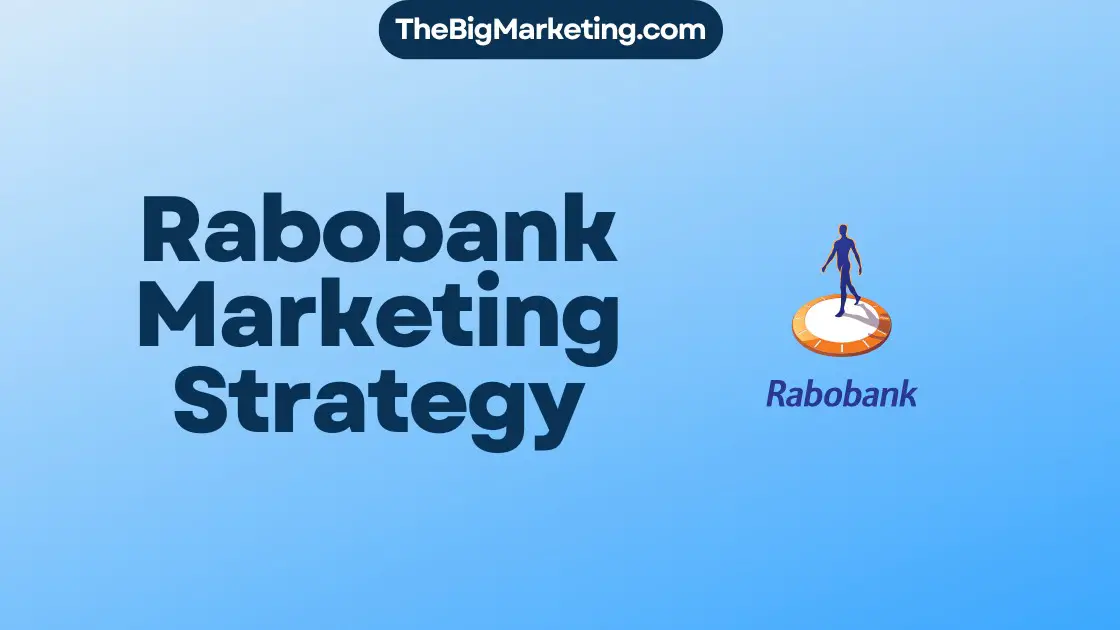Social media marketing has become an integral part of every business’s marketing mix. With its immense potential to connect with target audiences, strengthen brand presence, and boost revenue, social media marketing has become a vital aspect of digital marketing strategies. In this comprehensive guide, we will delve into the intricacies of social media marketing and equip you with the knowledge to develop a successful strategy in 2024.
Key Takeaways:
- Learn about the importance of social media marketing in enhancing brand visibility and driving customer engagement.
- Understand the benefits of social media marketing, including increased website traffic, brand awareness, and relationship-building with customers.
- Discover the top social media marketing platforms for businesses such as Facebook, Instagram, Twitter, LinkedIn, YouTube, TikTok, and Pinterest.
- Explore the key components of a robust social media marketing strategy, including audience research, brand identity, content strategy, and ongoing activity.
- Get insights into how to create an effective social media marketing strategy by setting goals, conducting audience research, planning content, and selecting the right platforms for your business.
What Is Social Media Marketing?
Social media marketing is a type of digital marketing that leverages various social media platforms to promote a brand and its offerings to its target audience. It goes beyond random posts on business accounts and requires a strategic approach to drive brand promotion and engagement. By utilizing social media platforms such as Facebook, Instagram, Twitter, LinkedIn, YouTube, and TikTok, businesses can effectively reach and connect with their target audience.
An effective social media marketing campaign involves careful planning and execution. To maximize its impact, businesses must focus on maintaining and optimizing their business profiles across different platforms. This includes creating a cohesive brand presence, providing comprehensive information about the company, and incorporating brand elements into the profile design.
Furthermore, developing a content calendar is crucial for consistent and engaging social media posts. A well-planned content strategy allows businesses to deliver relevant, entertaining, and informative content that resonates with their audience. It involves creating a variety of content types, such as images, videos, and blog posts, that align with the brand’s messaging and values.
The Role of Social Media Platforms
Social media platforms serve as the channels through which businesses can interact with their target audience. Each platform offers unique features and caters to specific demographics, allowing businesses to tailor their marketing efforts accordingly. For instance:
| Platform | Main Features |
|---|---|
| Wide reach, targeted advertising, community building | |
| Visual storytelling, influencer collaborations, product showcases | |
| Real-time updates, customer service, industry conversations | |
| Professional networking, B2B connections, thought leadership | |
| YouTube | Video content, tutorials, product reviews |
| TikTok | Short-form video content, viral challenges, brand awareness |
By selecting the appropriate social media platforms based on their target audience and marketing objectives, businesses can effectively promote their brand and connect with potential customers.
To conclude, social media marketing is a powerful tool within the digital marketing landscape, enabling businesses to amplify their brand presence and engage with their audience. It requires strategic planning, consistent content creation, and leveraging the unique features of different social media platforms. Implementing a well-rounded social media marketing strategy can significantly contribute to brand promotion and audience engagement in the digital era.
Benefits of Social Media Marketing
Social media marketing offers numerous benefits to businesses, helping them enhance their online presence and connect with their target audience in a meaningful way. By leveraging social media platforms effectively, businesses can achieve:
1. Brand Visibility
Social media provides a platform for businesses to expand their brand visibility and reach a wider audience. With billions of active users on various social media platforms, businesses can share their brand story, mission, and values with potential customers, creating awareness and recognition.
2. Customer Engagement
Engagement is at the heart of social media marketing. By interacting with their audience through comments, likes, shares, and direct messages, businesses can build a strong rapport and foster meaningful relationships. This engagement helps businesses stay top-of-mind and encourages customer loyalty and advocacy.
3. Website Traffic
One of the primary objectives of social media marketing is to drive traffic to your website. By strategically sharing links to your website or blog posts, businesses can direct interested visitors to their site, increasing the likelihood of conversions and sales.
4. Brand Awareness
Social media platforms provide an excellent opportunity for businesses to raise brand awareness by showcasing their products or services. Through visually appealing content, captivating videos, and compelling storytelling, businesses can capture the attention of their target audience and establish themselves as industry leaders.
5. Relationship-Building
Social media allows businesses to cultivate relationships with their customers, fostering trust and loyalty. By consistently engaging with their audience, addressing their concerns, and providing valuable content, businesses can position themselves as trusted advisors and create long-lasting relationships.
6. Measurable Results
Social media marketing offers a level of measurability that traditional marketing methods often lack. Through social media analytics and tracking tools, businesses can monitor the performance of their campaigns, measure engagement levels, and make data-driven optimizations for better results.
Overall, social media marketing provides a cost-effective and efficient way for businesses to enhance their brand visibility, engage with customers, drive website traffic, increase brand awareness, and build lasting relationships. By leveraging the power of social media platforms, businesses can unlock tremendous growth potential and stay ahead in today’s competitive digital landscape.
Top Social Media Marketing Platforms for Business
When it comes to social media marketing, businesses have a variety of platforms to choose from to reach their target audience effectively. Each platform offers unique features and caters to different types of audiences, ensuring businesses can tailor their strategies accordingly. Here, we explore some of the top social media marketing platforms for business:
1. Facebook
With over 2.8 billion monthly active users, Facebook provides an extensive user base for businesses to connect with. This platform allows businesses to create company pages, run targeted ads, and engage with their audience through posts, videos, and live streams.
2. Instagram
As a visual-centric platform, Instagram is ideal for businesses that want to showcase their products or services through stunning images and videos. With over 1 billion monthly active users, it offers a highly engaged audience and features like stories, reels, and shopping tags to drive conversions.
3. Twitter
Twitter is known for its fast-paced and real-time nature, making it perfect for businesses looking to share timely updates, news, and engage in conversations with their audience. It has a wide reach with over 330 million monthly active users.
4. LinkedIn
LinkedIn is the go-to platform for professional networking and B2B marketing. It allows businesses to build their brand presence, share thought leadership content, and connect with industry professionals. With over 740 million members, it provides access to a highly targeted audience.
5. YouTube
As the world’s second-largest search engine, YouTube offers businesses the opportunity to share video content with a massive audience. With over 2 billion monthly logged-in users, it is an excellent platform for storytelling, tutorials, product demonstrations, and driving brand awareness.
6. TikTok
TikTok’s popularity has skyrocketed in recent years, especially among younger audiences. It offers businesses a creative platform to showcase their products or services through short and engaging videos. With over 1 billion monthly active users, it presents ample opportunities for viral content and brand exposure.
7. Pinterest
Pinterest is a visual discovery platform that allows businesses to share and promote their products through creative and visually appealing content. With over 450 million monthly active users, it caters to those seeking inspiration for various categories, including fashion, home decor, recipes, and more.
Choosing the right social media marketing platform depends on your target audience, industry, and marketing objectives. It’s essential to conduct thorough research and understand the unique features and benefits of each platform to make an informed decision that aligns with your business’s goals.
Key Components of a Good Social Media Marketing Strategy
Developing a successful social media marketing strategy requires careful consideration of several key components. By integrating these components effectively, businesses can optimize their presence on social media platforms and achieve their marketing goals.
Audience Research
Conducting thorough audience research is crucial in understanding the target audience’s preferences, behaviors, and needs. By gaining insights into their demographics, interests, and pain points, businesses can tailor their social media strategy to resonate with their audience and deliver relevant content. Utilizing tools such as analytics and social listening can provide valuable data to inform audience research.
Brand Identity
Defining a strong brand identity is essential for creating a cohesive and consistent presence across social media platforms. It involves establishing the brand’s unique voice, values, and visual elements. By aligning the brand identity with the target audience’s preferences, businesses can foster stronger connections and build brand loyalty.
Content Strategy
A well-defined content strategy is essential for engaging the audience and delivering valuable content consistently. It involves developing a content calendar, identifying relevant topics, and creating various types of content such as articles, videos, infographics, and interactive posts. By aligning the content strategy with the audience’s interests and preferences, businesses can attract and retain followers.
Analytics
Your social media marketing efforts should be data-driven. By utilizing analytics tools, businesses can measure the performance of their social media campaigns, track key metrics such as engagement, reach, and conversion rates, and gain insights into audience behavior. This data can inform future strategies and help improve overall performance.
Ongoing Activity
A successful social media marketing strategy requires consistent and ongoing activity. Businesses should dedicate resources to regularly posting relevant and engaging content, responding to comments and messages, and actively participating in conversations on social media platforms. By staying active and responsive, businesses can foster stronger relationships with their audience and maintain a positive brand image.
Integrating these key components into your social media marketing strategy can help drive success in reaching and engaging your target audience. By conducting audience research, defining a strong brand identity, developing a content strategy, utilizing analytics, and maintaining ongoing activity, businesses can enhance their social media presence and achieve their marketing objectives.
How To Create a Social Media Marketing Strategy
Creating a successful social media marketing strategy requires a systematic approach that incorporates various essential elements. By following these steps and utilizing available resources, businesses can develop a comprehensive plan that aligns with their goals and resonates with their target audience.
Set Clear Goals and Objectives
Setting clear goals and objectives is the foundation of any effective social media marketing strategy. It helps businesses define their purpose and determine the desired outcomes of their efforts. Whether the goal is to increase brand awareness, drive website traffic, or generate leads, clearly defining objectives enables businesses to measure their success and make informed decisions.
Conduct Audience Research
Deep audience research is crucial in understanding the target market and tailoring content to their preferences. By analyzing demographic data, behaviors, and interests of the target audience, businesses can create relevant and engaging content that resonates with their customers. This research also helps identify the most effective channels and platforms to reach the target audience.
Plan Content Strategically
Content planning is an essential aspect of a successful social media marketing strategy. It involves creating a content calendar, outlining the topics, formats, and timelines for posting content. By planning ahead, businesses can ensure a consistent and engaging presence on social media and avoid missing out on important events or promotions.
Determine Brand Voice
A consistent brand voice across social media platforms helps businesses establish a unique identity and enhance customer recognition. Determining the brand voice involves defining the tone, language, and messaging style that aligns with the brand’s values and resonates with the target audience. Consistency in brand voice helps build trust and loyalty among customers.
Select the Right Platforms
Choosing the right social media platforms to invest time and resources in is essential for maximizing impact. Each platform has its unique audience demographics and features. By selecting the platforms where the target audience is most active, businesses can effectively engage with their customers and optimize their social media marketing efforts.
| Platform | Audience | Key Features |
|---|---|---|
| Wide range of demographics | Robust targeting options and advertising capabilities | |
| Younger audience, visually driven content | Influencer partnerships, Stories, and shoppable posts | |
| News-oriented, real-time conversations | Hashtags, trending topics, and direct communication | |
| Professionals, B2B networking | Job postings, industry insights, and networking groups | |
| YouTube | Video enthusiasts | Video hosting, advertising, and community engagement |
Importance of Social Media Marketing
Social media marketing plays a crucial role in digital marketing. It provides businesses with a powerful platform to connect with their audience, amplify their brand’s voice, and drive growth and engagement. With the ever-increasing presence of digital channels, social media marketing has become an essential component of any comprehensive marketing strategy.
One of the key benefits of social media marketing is its ability to build brand awareness. By establishing a strong presence on popular social media platforms such as Facebook, Instagram, Twitter, and LinkedIn, businesses can reach a wider audience and increase their visibility. This exposure helps in creating a lasting impression on potential customers and increasing brand recognition.
Another advantage of social media marketing is its potential for audience engagement. Through interactive posts, compelling visuals, and thought-provoking content, businesses can engage their audience and foster meaningful connections. By responding promptly to comments, messages, and mentions, businesses can demonstrate their commitment to customer satisfaction and build trust.
Content creation is a fundamental aspect of social media marketing. Businesses can leverage various formats such as blog articles, videos, infographics, and podcasts to deliver valuable and relevant content to their audience. This helps in establishing thought leadership, showcasing expertise, and providing solutions to customer pain points. Well-crafted content can attract and retain a loyal following, driving traffic to the website and increasing conversions.
Understanding Your Audience and Competitors
When it comes to social media marketing, understanding your audience and competitors is crucial for achieving success. By conducting audience research and competitor analysis, businesses can gather valuable insights to refine their strategies and gain a competitive edge.
Gaining Insights Through Audience Research
Audience research involves collecting data to understand the preferences and behaviors of your target audience. This information helps you tailor your content and marketing efforts to meet their specific needs and interests. Through audience research, you can:
- Identify your audience demographics, such as age, gender, location, and interests
- Gain insights into their online behavior and preferred social media platforms
- Understand their pain points, challenges, and motivations
- Discover trends and patterns that inform your content strategy
By delving deep into audience research, you can fine-tune your social media marketing tactics to resonate with your target audience and maximize engagement.
Unlocking Competitive Advantage with Competitor Analysis
Competitor analysis involves studying your competitors to gain insights into their strategies, strengths, and weaknesses. This information helps you differentiate your brand and identify opportunities to surpass your competition. Through competitor analysis, you can:
- Identify your direct and indirect competitors in the social media space
- Analyze their social media presence, including their content strategy and engagement levels
- Identify gaps in the market and opportunities for differentiation
- Learn from their successful tactics and avoid their mistakes
Competitor analysis works hand in hand with audience research, allowing you to align your marketing efforts with your target audience’s preferences and outperform your competitors.
Creating Buyer Personas for Targeted Marketing
Buyer personas are detailed profiles that represent your ideal customers. By creating accurate buyer personas, businesses can better understand their audience segments and tailor their social media content and strategies accordingly. When creating buyer personas, consider:
- Demographic information, such as age, gender, occupation, and income level
- Psychographic traits, including interests, values, and lifestyle choices
- Behavioral patterns, such as online habits, content consumption, and purchasing preferences
- Challenges, pain points, and motivations that influence their decision-making
By developing buyer personas, businesses can create more relevant and targeted social media campaigns that resonate with specific segments of their audience.
Understanding your audience and competitors is the foundation of a successful social media marketing strategy. By conducting thorough audience research, analyzing your competitors, and creating accurate buyer personas, you can tailor your content, messaging, and tactics to connect with your audience, stand out from the competition, and achieve your marketing goals.
Conclusion
Developing a successful social media marketing plan is a critical aspect of any business’s overall marketing strategy. By targeting the right audience and crafting a well-thought-out content strategy, businesses can maximize their social media presence and achieve their marketing goals. It is crucial to understand that measuring success is equally important. Utilizing analytics tools can provide valuable insights into the effectiveness of social media campaigns and help refine marketing strategies for better results.
As social media continues to evolve in 2024 and beyond, businesses have unparalleled opportunities to enhance brand visibility, engage with their target audience, and drive growth. By leveraging the power of social media marketing, businesses can establish a strong online presence, nurture relationships with customers, and stay ahead of competitors in the digital landscape. However, it is essential to adapt and evolve with the changing trends and preferences of the audience to ensure continued success.
In summary, a well-crafted social media marketing plan with a targeted audience, an effective content strategy, and a focus on measuring success through analytics is a recipe for achieving marketing objectives. Embracing the power of social media marketing can open doors to new opportunities and significant growth for businesses in 2024 and beyond.




